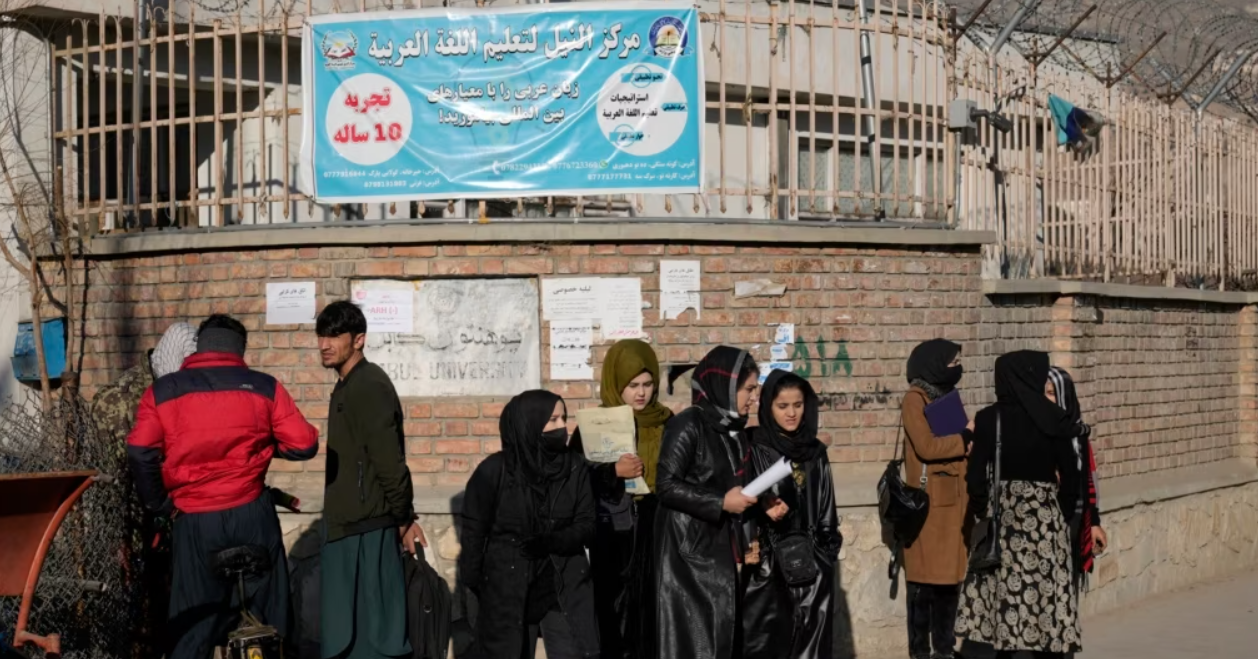ISLAMABAD: Afghanistan’s ruling Taliban indicated Thursday they may ease a ban on women’s education, saying work is underway to resolve “this temporary step.”
The statement came in response to a call by an alliance of Muslim-majority countries for the Islamist group to reverse its bans on girls’ education and Afghan female aid workers.
The 57-member Organization of Islamic Cooperation, or OIC, based in Saudi Arabia, convened an “extraordinary meeting” of its executive committee Wednesday to discuss the Taliban curbs on women.
A post-meeting OIC declaration described the bans as violations of Islamic law and “the methodology” of Prophet Muhammad, urging the Taliban to reconsider decisions banning women from education and work.
The OIC “expresses its disappointment over the suspension of female education in Afghanistan and the decision ordering all national and international nongovernmental organizations [NGOs] to suspend female employees until further notice,” the statement said.
Taliban chief spokesman Zabihullah Mujahid in his response Thursday said that his government welcomes the OIC meeting and its declaration. But in a statement issued to media, Mujahid urged the international community “not to interfere in internal affairs” of Afghanistan.
“The concern of this organization regarding women’s education is understandable,” he said. “But [the] Islamic Emirate has taken a temporary step and is working to create conditions to resolve the issue,” Mujahid said, using the official title for the men-only Taliban administration in Kabul. He did not elaborate.
The OIC said on Wednesday it also had decided to send its special envoy for Afghanistan to Kabul to deliver the organization’s message to the Taliban leadership directly.
The Taliban have imposed wide-ranging restrictions on women since returning to power in August 2021, banning teenage girls from secondary schools and blocking many women from work.
Last month, the Islamist rulers abruptly ordered an indefinite ban on female university education and forbade Afghan women from working for NGOs, saying they were not wearing the Islamic headscarf or respecting other official Shariah rules.
The NGO ban has forced major international humanitarian groups to suspend their operations in Afghanistan, saying they cannot work without female staff.
The Norwegian Refugee Council, or NRC, which has also halted its programs, warned earlier this week that the ban on female staff could push as many as 6 million Afghans into famine.
NRC Secretary-General Jan Egeland said in a statement that a continued ban of female workers at NGOs could leave 13.5 million people without a safe water supply and 14.1 million people without protection services.
No foreign government has granted formal legitimacy to the Taliban administration, mainly over human rights concerns and treatment of Afghan women.
The Taliban have repeatedly defended their policies, insisting they are governing Afghanistan strictly in line with local culture and Sharia.
VOA









Comment